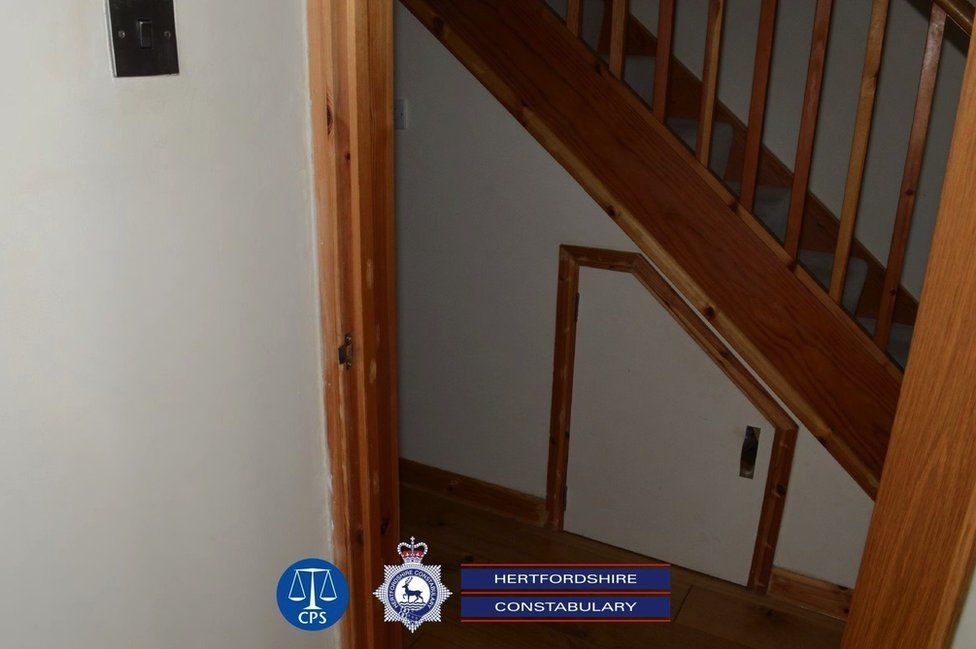David Carrick: How a monster finally lost control
David Carrick #DavidCarrick

Image caption,
Carrick pleaded guilty to 49 charges, relating to 85 offences, including 48 rapes
By June Kelly, Judith Burns and Claire Ellison
BBC News
Serial rapist and former police officer David Carrick has been given 36 life sentences and will serve more than 30 years in prison, for crimes spanning almost two decades. The detective who ran the investigation tells BBC News how, after earlier police failures, his team of officers finally brought Carrick to justice.
![]()
“He came across as charming, engaging and a little bit blasé about it all,” says Det Ch Insp Iain Moore about David Carrick’s first police interview. But he says the serial rapist’s controlling nature was also apparent from the outset.
“He wanted to control how the interview went. He wanted to be in charge, and when there were difficult questions posed, that’s when it became difficult for him,” adds DCI Moore, who led the investigating team from the Bedfordshire, Cambridgeshire and Hertfordshire major crime unit.
Carrick, an officer with the Metropolitan Police, was first interviewed in October 2021 after he had been arrested by police in Hertfordshire following a rape complaint from a woman who had met him on a dating website. The woman described how, at their first meeting the year before, he had plied her with drink and attacked her in a hotel bedroom.
Once Carrick, who lived in Stevenage, was finally charged, DCI Moor says he “thought there’s got to be something else out there.” And there was.
The investigation quickly snowballed, he says. Carrick’s name was reported in the media following his first court appearance, after which calls started coming in from other women he had raped and abused over many years.
“I just sat back in my chair and thought, ‘where do we go with this?’ It’s absolutely huge,” DCI Moor remembers. “I was shocked and appalled. I’ve been a detective a long time, but I’d never seen anything on this scale.
“The women were obviously extremely distressed but they were just keen to know that they would be trusted and supported. Because the first person had come forward and charges had been brought, they felt they could trust the system.”
The women lived in different places, they were a range of ages and their stories spanned 17 years. But there were striking similarities in their testimonies about how Carrick had controlled, attacked and abused them.
Earlier police failings
There had already been multiple potential missed opportunities to stop Carrick across his 20 years as a police officer.
It has emerged how Carrick had come to the attention of the Met, as well as three other forces, nine times over the years – but none of the complaints and investigations resulted in charges.
The Met has since apologised for failing to spot and act on his pattern of abusive behaviour, acknowledging it may have prolonged the suffering of the victims.

Image source, Hertfordshire Constabulary Image caption,
The image, released by police, shows an under-stairs cupboard where Carrick falsely imprisoned two women, separately, on different occasions
“He was a monster,” says DCI Moor now. “Initially he was very charming, which is why they engaged with him in the first place. Over time, that changed and his controlling, coercive nature came out.”
The women described how Carrick used his job to stop them reporting him. “There were constant reminders to them that he was a police officer,” DCI Moor says. “There were photographs, comments, maybe a text message. It was all about effectively trying to say to the victims, ‘because I’m a police officer, you won’t be believed’.”
Dozens of officers were drafted into the investigation and one of the major challenges, he says, was gathering evidence of crimes going back so many years.
“Normally in investigations now, you might have forensic evidence, CCTV, mobile phone evidence, but when you are dealing with something so far back, you don’t have that,” says DCI Moor. “You have accounts from the victims, possible witnesses and, with some of the women, they had phone messages from Carrick.”
‘All the more believable’
From the start, detectives worked closely with the Crown Prosecution Service (CPS), which prosecutes criminal cases investigated by the police.
When it came to deciding whether there was enough evidence to charge Carrick, Peter Burt, head of the complex casework unit at Thames Chiltern CPS, says the number of women reporting similar stories made the case stronger.
“When you have got more than one woman saying they were locked in a cupboard or urinated over, it becomes all the more believable, and it is much easier to present to a jury,” he says.

Image source, Julia Quenzler / BBC Image caption,
Carrick pictured in court
While Carrick, the arch manipulator, initially denied the growing list of charges, prosecutors devised a strategy to out-manoeuvre him.
“We worked on a plan, which was to build such a powerful case that, ideally, none of our victims would have to give evidence at trial. Obviously, it succeeded,” says Mr Burt.
“We were worried that it wasn’t going to at one point because he entered not guilty pleas in the face of that overpowering evidence. And then he recently changed his pleas to guilty and so we avoided the women having to go through the ordeal of reliving the events they had gone through.”
Carrick eventually pleaded guilty to 49 charges against 12 women – some of those covered multiple incidents and comprised 85 offences, including 48 rapes. Many of his crimes were committed in Hertfordshire, where he lived.
More victims
Since the full horror of David Carrick’s offending became public, more women have contacted police, it has emerged.
Carrick’s crimes are “a dark cloud over policing”, DCI Moor says, adding: “The fact that Carrick wore the same uniform as me, I just find it totally abhorrent.”
DCI Moor is urging remaining victims to report other crimes. “I hope that we have demonstrated that we can be trusted to gather their evidence and take that forward in a case,” he says.
“There will be support from within the police as well as independent sexual violence advisers who can support victims. I would urge people to trust us.”
He adds: “I have absolutely no doubt that David Carrick has committed other offences that we don’t yet know about.”